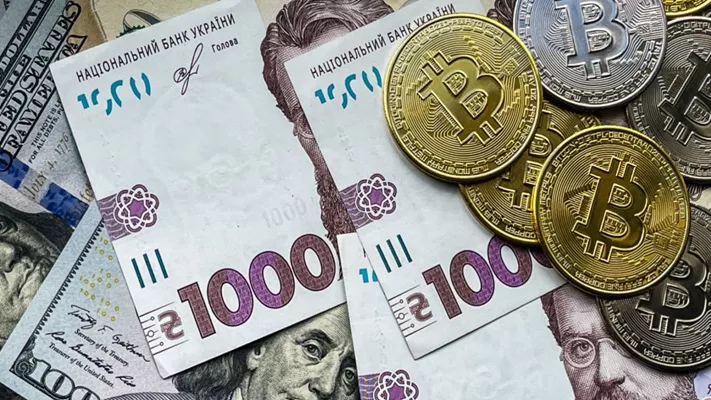Foreign exchange (Forex) trading has become a popular investment option for individuals and institutions. Many people wonder if buying currency is a good investment. The answer depends on various factors, such as market conditions, investor goals, and risk tolerance. In this article, we will explore the potential benefits and risks of currency investment to help you make an informed decision.
Understanding Currency Investment
Currency investment involves buying and selling foreign currencies in the foreign exchange market. Investors aim to make a profit by taking advantage of exchange rate fluctuations. Unlike traditional investments, such as stocks and bonds, currencies trade in pairs. This means you are always buying one currency while selling another.
The foreign exchange market is the largest financial market in the world. It operates 24 hours a day, five days a week, with major financial centers in London, New York, Tokyo, and Sydney. Forex trading is mainly done by central banks, financial institutions, corporations, and individual traders.
Ways to Invest in Currency
There are different ways to invest in foreign currencies. Here are the most common methods:
1. Forex Trading
Forex trading involves speculating on currency price movements. Traders use leverage to control larger positions with a small amount of capital. While leverage can amplify profits, it also increases risks. Forex traders analyze market trends, economic indicators, and geopolitical events to make informed decisions.
2. Currency ETFs (Exchange-Traded Funds)
Currency ETFs allow investors to gain exposure to foreign currencies without directly trading in the Forex market. These funds track the performance of a specific currency or a basket of currencies. Currency ETFs are traded on stock exchanges, making them accessible to retail investors.
3. Foreign Currency Fixed Deposits
Some banks offer foreign currency fixed deposits, where investors can hold money in a foreign currency account. Interest rates on these deposits vary depending on the currency and economic conditions of the issuing country. This option is relatively safe but offers lower returns compared to Forex trading.
4. Buying Physical Currency
Investors can also buy physical foreign currency and store it for future use. This strategy is often used by people who travel frequently or want to protect their wealth from local currency depreciation. However, storing large amounts of cash poses security risks and may not be the best investment choice.
Advantages of Currency Investment
Currency investment offers several benefits, including:
1. High Liquidity
The Forex market is highly liquid, meaning investors can buy and sell currencies quickly without significant price changes. This makes it easier to enter and exit positions compared to other markets like real estate or stocks.
2. 24-Hour Market
Unlike stock markets, which have limited trading hours, the Forex market operates 24/5. This allows investors to trade at any time, making it convenient for people with different schedules.
3. Potential for High Returns
Currency prices fluctuate due to economic events, political developments, and market sentiment. Traders who accurately predict these movements can make substantial profits.
4. Portfolio Diversification
Investing in foreign currencies can help diversify a portfolio. When stock markets decline, some currencies may still perform well. Holding different assets reduces overall investment risk.
Risks of Currency Investment
Despite its advantages, currency investment also has risks that investors should consider:
1. High Volatility
Currency prices can be highly volatile, leading to sudden gains or losses. Factors such as interest rate changes, inflation, and geopolitical tensions can cause sharp price movements.
2. Leverage Risks
Many Forex traders use leverage to amplify their trades. While leverage increases potential profits, it also magnifies losses. A small market movement in the wrong direction can wipe out an entire investment.
3. Market Manipulation
The Forex market is decentralized, meaning it lacks strict regulation. Some brokers engage in unethical practices, such as price manipulation and stop-loss hunting, which can hurt traders.
4. Economic and Political Risks
Currency values are influenced by a country’s economic performance and political stability. Unexpected events, such as policy changes, economic downturns, or political conflicts, can significantly impact exchange rates.
Factors to Consider Before Investing in Currency
If you are considering investing in foreign currencies, here are some factors to keep in mind:
1. Investment Goals
Determine your investment goals before entering the currency market. Are you looking for short-term profits or long-term stability? Understanding your objectives will help you choose the right strategy.
2. Risk Tolerance
Forex trading carries a high level of risk. If you are risk-averse, consider safer alternatives such as currency ETFs or foreign currency fixed deposits.
3. Market Research
Stay informed about global economic trends, interest rate policies, and political events. A well-informed investor has a better chance of making profitable decisions.
4. Trading Strategy
Develop a clear trading strategy, including entry and exit points, risk management techniques, and position sizing. Sticking to a disciplined plan can help minimize losses.
5. Broker Selection
Choose a reputable Forex broker with transparent pricing, low spreads, and strong regulatory oversight. Avoid brokers with a history of unethical practices.
Conclusion
Buying currency can be a good investment for those who understand the risks and rewards. The Forex market offers high liquidity, potential for profit, and diversification benefits. However, it also comes with volatility, leverage risks, and market uncertainties.
Investors should carefully assess their financial goals, risk tolerance, and market knowledge before entering the currency market. For beginners, it is advisable to start with small investments, use demo accounts to practice trading, and seek professional guidance if needed.
If approached wisely, currency investment can be a valuable addition to an investor’s portfolio. However, like any financial market, it requires patience, discipline, and continuous learning to succeed.
Related Topics:


